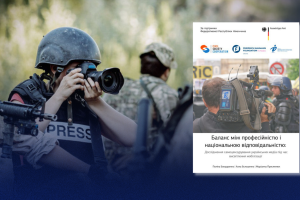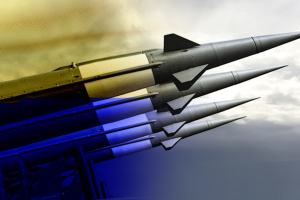The sixth year of decommunization: the attitude of Ukrainians toward prohibition of symbols of the totalitarian past
The nationwide survey was conducted by the Ilko Kucheriv Democratic Initiatives Foundation jointly with the Kyiv International Institute of Sociology from April 17 to 22, 2020 in all regions of Ukraine except for Crimea and the occupied territories of Donetsk and Luhansk regions. The study was conducted using the CATI method (telephone interviews using a computer) based on a random sample of mobile phone numbers. 2000 people were interviewed, and the sample is representative of the adult population (18 years and older) of Ukraine. The statistical sampling error does not exceed 2.2%.
The survey was funded by the MATRA project of the Embassy of the Kingdom of the Netherlands.
The press-conference “The SIXTH YEAR OF DECOMMUNIZATION: OUTCOMES AND PROJECTIONS” was conducted by the Ilko Kucheriv Democratic Initiatives Foundation as a part of USAID/ENGAGE activity, which is funded by the United States Agency for International Development (USAID) and implemented by Pact in Ukraine. The contents of the event are the sole responsibility of Pact and its partners and do not necessarily reflect the views of the United States Agency for International Development (USAID) or the United States Government.
- 32% of Ukrainians feel positively about the decision to ban communist symbols according to the current Law of Ukraine "On Condemnation of Communist and National Socialist Totalitarian Regimes." Almost the same number of citizens share a negative attitude towards this decision - 34%. About a quarter of citizens are indefferent.The share of positive assessments of this decision is slightly larger in the Western (45%) and Central (33%) regions compared to the South and East - 22% and 24%, respectively. Notable, about a quarter of citizens in all regions are indifferent to this issue. As for the age structure of responses, those over 60 years old have a less positive attitude to the ban of communist symbols. Among the younger groups of respondents (under 40), there is a significant share of those who do not care about the prohibition of communist symbols.
- 30% of Ukrainians approve of the renaming of their cities, villages and streets named after Soviet leaders, while 44% feel negatively about it, and about 20% are indifferent. Positive attitudes towards the renaming of toponyms prevails only in the Western region (44% "for" and 30% "against"); in the East and South, about half of the citizens have a negative attitude towards this idea. Trends in the age distribution are similar to those toward the ban of communist symbols: older people (47% for the 60-69 age group and 56% for people over the age of 70) feel more negatively about the renaming of the toponyms, while young people are relatively more indifferent.
- 48% of Ukrainians support the recognition of political leaders of the Ukrainian People's Republic (UNR) as fighters for Ukraine's independence. 16% have a negative attitude to it, and another 16% are indifferent. Notable, every fifth respondent is undecided. A positive balance of attitudes towards the recognition of UNR figures is observed in all regions. Age groups do not differ in the share of positive and negative attitudes, but among the elderly people there are more undecided respondents.
- 34% of Ukrainians support the condemnation of the USSR as a communist totalitarian regime that pursued a policy of state terror, according to Ukraine’s legislaiton. About 31% of respondents do not support the idea; another 15% are indifferent; 19% are undecided. In the Western region, there are more people who support the condemnation of the USSR (47% "for" and 23% "against"), in the Central region opinion is divided (35% "for" and 31% "against"). In the East and South, 23-24% of respondents support the condemnation of the USSR, and 35-37% do not. The younger generation of Ukrainians is more indifferent toward Societ legacy. Whereas older generation is well aware of it and older people are more polarized in their opinion about USSR. At the same time, the share of those who have a positive attitude toward the condemnation of the USSR is almost the same among all age groups.
- Historical memory correlates with citizens’ vision of the future of Ukraine. For example, among those who agree with the ban on communist symbols, 68% support Ukraine’s integration with Europe. On the other hand, those who do not agree with the ban on communist symbols tend to support an alliance with Russia or non-alignment with any of the foreign alliances.








